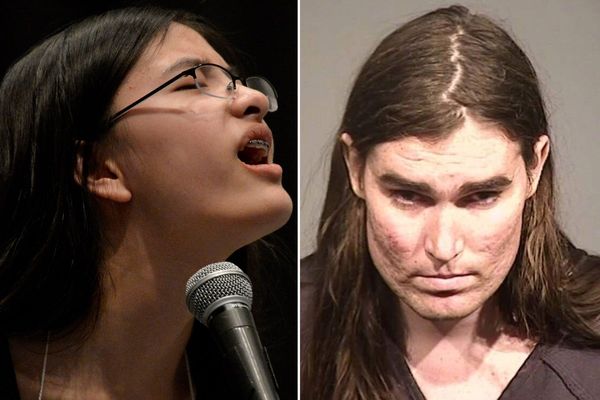
Labor has helped the Coalition pass the visa cancellation bill in the lower house in a bid to sidestep what the immigration minister, Alex Hawke, admits is a “test for Labor”.
On Wednesday, the Morrison government confirmed it would relist two bills seeking to lower the bar for failure of the character test for visa cancellation and introduce mandatory minimum sentences for firearms offences.
The move seeks to sharpen the contrasts with Labor on national security, as Scott Morrison explained in the party room on Tuesday, in a bid to recover the government’s position ahead of the 2022 election.
Hawke told reporters in Canberra the government would put the visa bill to the Senate before the election, implying it would get a vote in the final two sitting days, in budget week in late March. In parliamentary debate, he claimed to have won Senate crossbench support.
But in question time, Hawke accused Anthony Albanese of seeking to pass the bill in the lower house “and send it to the Senate when you know we have run out of time to pass the bill” – a possible admission it cannot be legislated this term.
Kristina Keneally revealed on Wednesday that Labor would not oppose the bill in the House of Representatives.
But in debate on Wednesday evening, the shadow assistant immigration minister, Andrew Giles, confirmed Labor would attempt to amend the bill in the Senate to remove retrospectivity and soften the impact on New Zealanders.
Independent MP Andrew Wilkie labelled the bill a “blatant attempt by the government to pander to racism and xenophobia” and said it was “completely and utterly unprincipled” to vote for it.
Nevertheless, the bill passed the lower house on Wednesday evening.
Earlier, Hawke ruled out amendments. “Absolutely not,” he told reporters in Canberra.
“The reason we’ve set this test for Labor is that Labor is, after two years of opposing this bill, seeking to run from the house and block it in the Senate.”
Under current migration law, visas are automatically cancelled if a non-citizen is sentenced to 12 months or more in jail, but can also be cancelled if a person fails the “character test”.
The proposed bill deems that a person convicted of a “designated offence”, such as violence or breaching a court order, is of bad character, making visa cancellation more likely, although a discretion not to do so remains.
In October, Labor helped defeat the bill in the Senate, citing concerns that low-level offending should not be a trigger for deportation, retrospective application should be removed, and a ministerial direction should be issued to soften the impact on New Zealand citizens.
Hawke told reporters there are “no trivial crimes captured by this legislation”.
“The Morrison government will not negotiate over community safety … or serious and violent crime.”
New Zealand’s foreign minister, Nanaia Mahuta, reiterated the country’s concerns about deportations.
“We don’t agree with the policy and would be concerned at any moves to strengthen it,” Mahuta told Guardian Australia.
“New Zealand accepts that Australia has the right to deport people. However, we are concerned that Australia continues to send people to New Zealand who have never lived here and have no family or support networks at all.”
Asked about harms to Australia’s relationship with New Zealand, where most people whose visas are cancelled are sent, Hawke said the cancellation policy was “non-discriminatory”.
The home affairs minister, Karen Andrews, defended the politicisation of the issue, arguing that Labor has “set a test for itself” by portraying itself as tough on national security with “very little evidence”.
Andrews said Labor was so determined to present a “small target” in the election it was “folding in on itself”.
Greens leader, Adam Bandt, said Labor should not help the Morrison government pass a bill that “will hurt people” including “splitting up families, many of who have lived here for years”.
Earlier, the government also introduced its firearms bill, which increases maximum sentences for trafficking and sets a mandatory minimum sentence of five years in prison for firearms offences.
Labor has a longstanding opposition to mandatory sentences, opposing a similar measure in 2015 under the Abbott government, but the bill is yet to be reconsidered by the caucus.







